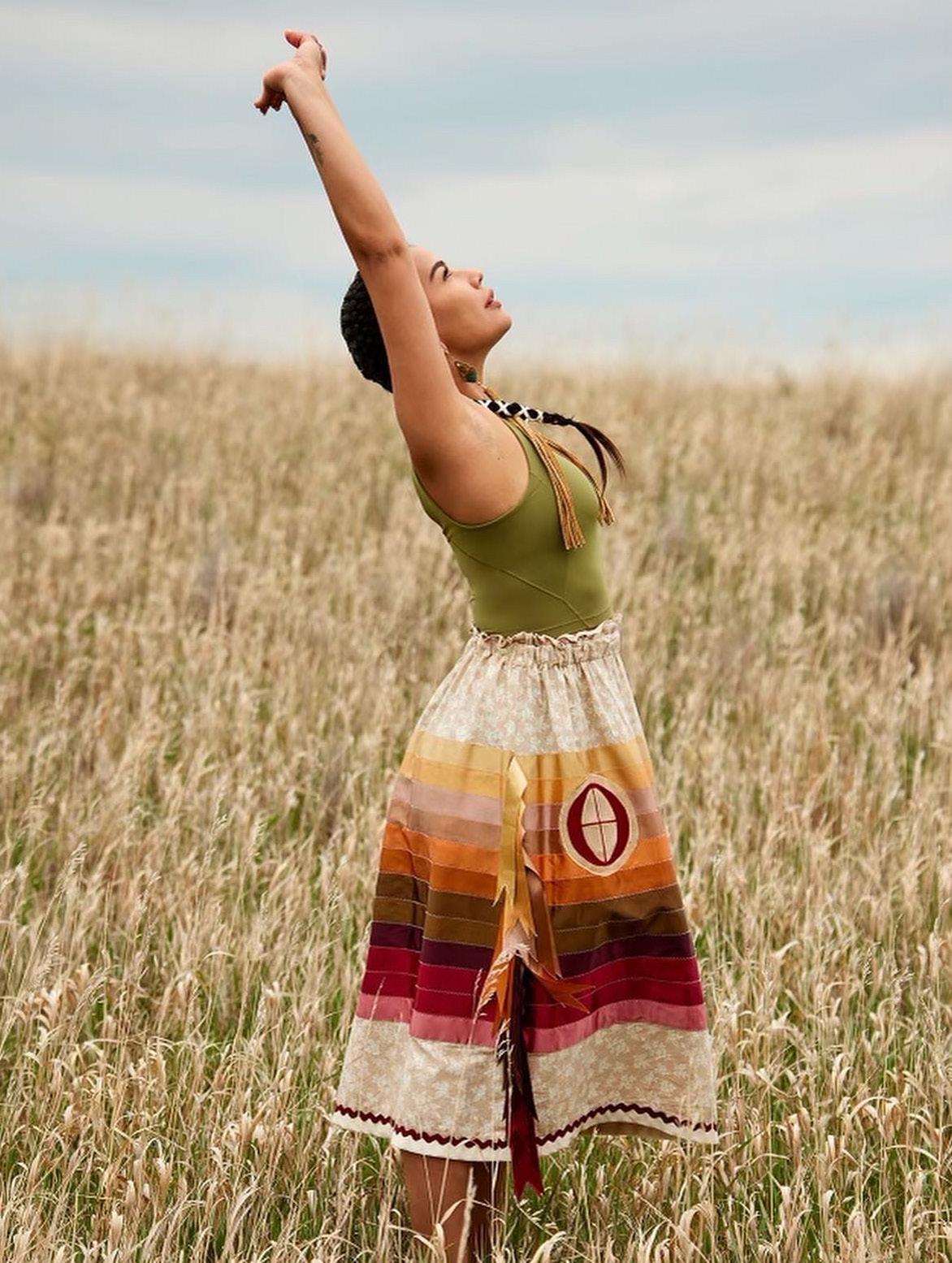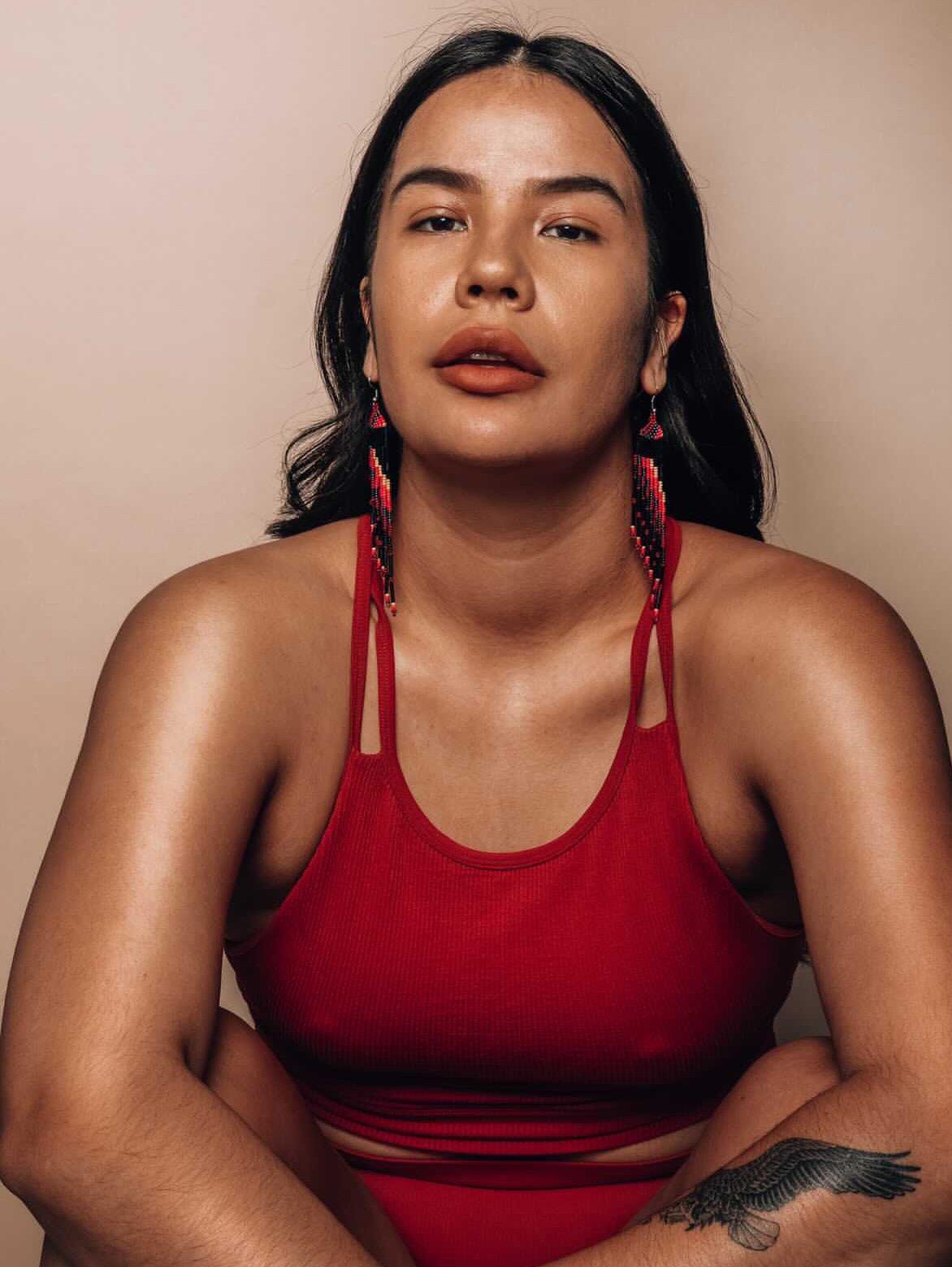
4 minute read
Rediscovery Through Yoga
Shayla Stonechild is making space for all in health and wellness
BY AMY KENNY THOMPSON CHAN FOR LULULEMON, DENITA GLADEAU Amy is a writer, curator and runner of mountains based in Whitehorse, YT.
AMYKNY AMYKNY
Shayla Stonechild doesn’t take the easy route. Eight years ago, when she tried yoga for the first time, she opted for a hot yoga class—one that ended up being difficult in ways beyond just the profuse sweating that typifies the style.
“It was a time in my life where I was going through a lot of personal stuff,” says Stonechild, who is Métis and Nehiyaw Iskwew (Plains Cree Woman) from Muscowpetung First Nations. “I didn’t realize how the practice would make me return back to myself.”
For a long time, she says she was running away from her emotions and everything else in her life. All of a sudden, she had to sit still and face everything she’d been running from.
That realization might cause some to keep running, away from yoga, but Stonechild had the opposite reaction. She says she got addicted to it. She kept up her practice. She trained as a teacher herself. Today, she is the first Indigenous person to appear on the cover of Yoga Journal Magazine. She has worked as an instructor at CMMN GRND. She’s part of Lululemon’s Diversity and Inclusion Committee in Vancouver, and works for them as a global yoga ambassador.
In each of these roles, she puts her own stamp on the practice. She weaves in her own understanding and her own experience of having found a reconnection to herself through yoga.
“As much as it was healing through the physical body, it was just as much, if not more, healing through my emotional and mental and spiritual health,” she says of her introduction to the practice. “And so it really allowed me to cleanse everything that I was holding on to.”
It was uncomfortable. She’d end classes in tears. But she always left feeling refreshed and as though she had let go of something that needed letting go.
“I really wanted to bring that feeling into Indigenous communities,” she says. The more time she spent in yoga studios, the more she noticed that the health and wellness sphere wasn’t one where she met a lot of other Indigenous people. There was a lack of accessibility to classes in Indigenous communities, let alone teacher training.
Stonechild decided she specifically wanted to work with Indigenous women and Indigenous youth. Since starting as a teacher, she’s had a number of students tell her they didn’t think they belonged in that space because they didn’t see themselves represented.
During the pandemic, she found an increased virtual demand for the kind of teaching she was doing. A lot of Indigenous women opened up to her, over the course of classes, about things they were facing. It made Stonechild feel valued and validated in her role, though that kind of support takes a toll. Stonechild says she had to take a step back from teaching for a while and evaluate how much of herself she was giving as an instructor.
“It’s something I’m still learning to this day,” she says.
In the new year, that role includes a new component to her partnership with Lululemon. The company sponsored the Matriarch Movement, a non-profit that Stonechild founded to amplify Indigenous voices through story, meditation, movement and medicine. They spent the last year putting together a virtual Indigenous wellness series highlighting seven Indigenous wellness instructors. The goal is to see it released in 2023.
Lululemon also approved a grant for a series of retreats throughout Canada in 2023, where Stonechild will bring in Indigenous instructors as a way of creating community and strengthening that sense of belonging.
In her personal practice and instruction, Stonechild says she’s been in a process of unlearning some of what she has learned so she can bring her own style to her teaching, one that focuses on the Indigenous communities she wants to serve.
A lot of her own training focused on posture: certain physical cues, the body. There was a very specific script, she says. It was easy to get hung up on the physical and get lost in that script. But yoga is more than just the physical. She says she wants to create more room for students to feel validated in their own autonomy and for them to focus on more than the physical.
She works to translate yogic language and tie it to the culture of the community where she’s teaching.
“At the end of the day, yoga is ceremony and we can relate to ceremony as Indigenous people,” she says. “We have a medicine wheel. We also teach of the balance and harmony that exists within our mind-body-spirit connection. When you go to a sweat lodge ceremony, you’re going in with an intention, and you’re creating a dedication to something bigger than just yourself. When you go to a yoga practice, you’re doing that same thing. You’re creating an intention. You’re dedicating your practice to someone else, and you’re creating a deeper relationship with something that extends far beyond just your individual self.”











